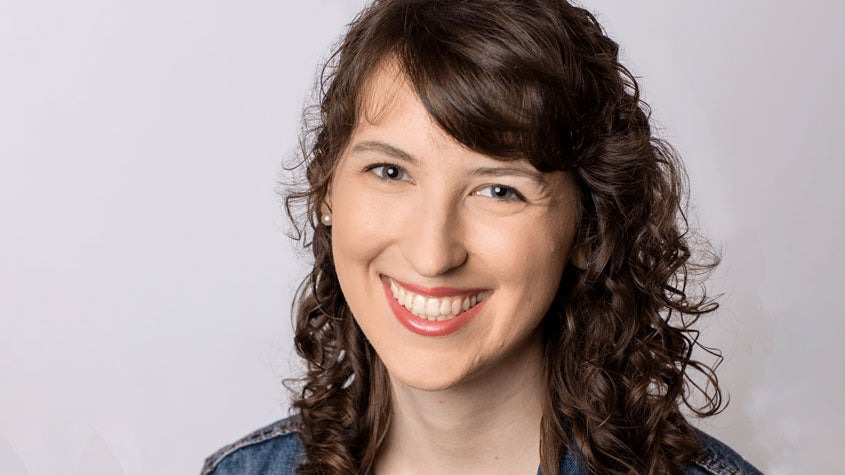Lauren Schmidt Brose discovered career satisfaction in the technology industry working for lasting brands that people already use and appreciate.
“It’s motivating to know you are making a real impact on the lives of millions of customers,” said the Rice University Computer Science alumna (B.S. ‘16.) “At GitHub and Microsoft, we have the support necessary to make both small and large changes. I’m not fighting for time and resources the way I would in a startup.”
Brose was born into a world already familiar with Microsoft Windows and said she loved working for a brand that she’d grown up using. “I’d start up Windows and think, ‘It is awesome that people out there can make this kind of product.’ Then as a Rice CS student, I realized, ‘Wow! I could be one of those people.’”
She found her niche in the industry first as a program manager with Microsoft, and then as a GitHub product manager. Brose said PMs can experience a lot of moments when they are face-to-face with the pain of their customer’s experience – through threads on developer channels or in social media.
“Then you deliver a solution that addresses their problem and they retweet the GitHub change log, post an excited comment, or even open an issue in their repo to go try it out – and I know I helped solve their problem. Or not. Sometimes you see responses or telemetry that says it didn’t solve the problem and you go back to the drawing board to try again.”
Brose has always worked in the developer tool space, like Microsoft’s Visual Studio Online and Azure DevOps. She said PMs have to balance innovation with maintenance of existing platforms upon which users are dependent. The temptation to not break what is working is offset by consumer demands for newer, faster, better.
“If you think you can coast without making improvements or trying to innovate, you’ll be ousted by the competition,” said Brose. “You have to be on the front lines and aware of both lingering issues and rising trends. Are your developers getting stuck? Maybe they need a new toolset or work-around. The world of a PM is always changing, always exciting.
“These days, we’re seeing dev teams who are moving their monolithic systems to microservices –attempting to break apart huge systems and do it incrementally. How do different enterprises approach that problem? Does it change their development workflow needs? What can we do to help our customers?”
Tweets, documentation, and product usage all help Brose identify where their users struggle and what sparks their enthusiasm.
She said, “Actually, that’s one of my three bits of advice for current CS students and recent alumni.
“Number one: learn how to think about problems. COMP 182, Algorithmic Thinking, is the greatest class ever. Pay attention. The course shows you how to take a problem and come to a solution, evaluate the pros and cons, and implement the solution. And that process gets applied to problems beyond algorithms – like planning and tracking tools. How do people think about opening an issue? When do they submit a request, when not? How do developers structure their thinking, to bring it down to the user level and convey what we are trying to say?”
Her second piece of advice is to keep looking if software development doesn’t feel satisfying. She said there are many different ways of working in the technology industry. Learning the basic engineering skills will provide a foundation that can be applied to other roles like product management, technical writing, and speaking – which can lead to pre- and post-sales support and other customer service careers requiring technical knowledge and expertise.
“Finally, be ready to change. The user experience changes, the organization changes, the ways you build apps changes. But the constant is how you think about solving problems. And that’s one of the things Rice CS teaches better than anyone else.”

